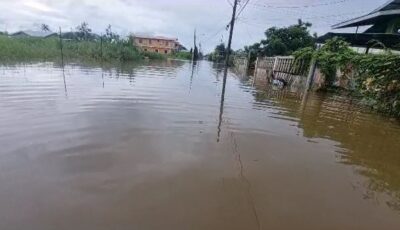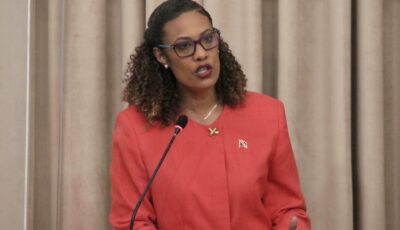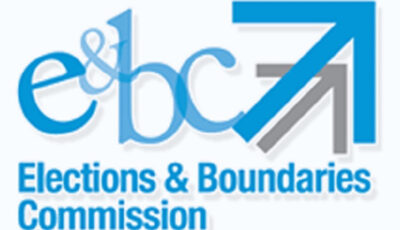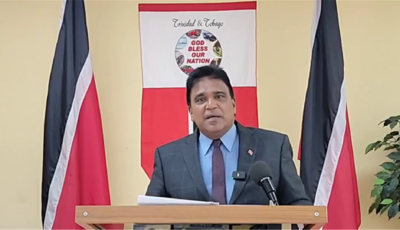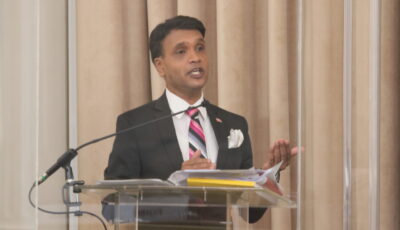Trinidad PM urges fresh effort in trade talks between Canada, Caricom
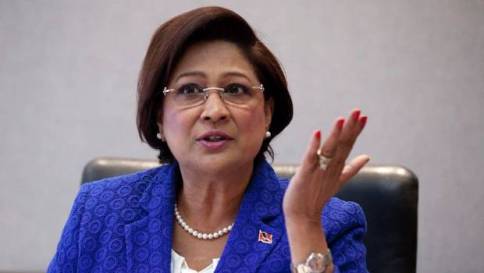 Talks on a free trade agreement between Canada and a group of 15 Caribbean countries appear to have stalled and need to be reinvigorated to meet a year-end deadline to conclude a deal, says Trinidad and Tobago Prime Minister Kamla Persad-Bissessar.
Talks on a free trade agreement between Canada and a group of 15 Caribbean countries appear to have stalled and need to be reinvigorated to meet a year-end deadline to conclude a deal, says Trinidad and Tobago Prime Minister Kamla Persad-Bissessar.
In a meeting Friday with The Globe and Mail’s editorial board, Ms. Persad-Bissessar said a current agreement between Canada and some Caribbean countries will expire this year, removing existing duty-free access to each others’ markets.
Canada and the Caribbean Community (Caricom) nations have been discussing a new free trade deal since 2007, but there is growing urgency to complete a deal by year-end because the existing trade deal, known as the Caribbean-Canada Trade Agreement (Caribcan), cannot be renewed due to World Trade Organization opposition. The WTO has ruled its preferential duty-free access is incompatible with WTO rules.
Ms. Persad-Bissessar said talks on a broader free trade agreement have been hindered because of “insecurity” among some Caribbean nations that they will not be treated fairly following complaints in some countries about a prior deal with the European Union.
“The discussions have been going on for quite some time and have been stalled to some extent, but we did commit to Prime Minister Harper that we are very interested in this, and in free trade, and with creating these markets on both sides,” Ms. Persad-Bissessar said.
She is on a four-day state visit to Canada, which is the first by a Trinidadian prime minister since 1966. Ms. Persad-Bissessar is set to take the rotating leadership of Caricom in July, giving Trinidad and Tobago a key role in concluding a new trade deal with Canada.
Two-way trade between Canada and Trinidad climbed by 45 per cent between 2005 and 2012 to an annual level of $600-million. Trinidad and Tobago’s major exports to Canada include methanol, beer, food and beverage products.
Canadian companies have an estimated $1.3-billion invested in Trinidad and Tobago, primarily in financial services and energy sectors. Canadian banks, including Bank of Nova Scotia, have “dominated” the banking sector in Trinidad for decades, the Prime Minister said.
Ms. Persad-Bissessar said the small Caribbean nation of 1.3 million people is keen to diversify its economy beyond its heavy reliance on the energy sector, saying the boom-and-bust cycles of oil prices create too much economic volatility.
The government has identified priority sectors for development including information communications technology, light manufacturing, clean technologies and alternative energy, maritime industries, creative sectors such as fashion, tourism, agribusiness and financial services.
“Trinidad and Tobago is very open and we would welcome a free trade agreement, but because of the structure of Caricom, it isn’t a decision we can take,” she said. “It has to be done in collaboration with Caricom.”
Trinidad is also hosting a Caricom seminar later this year to develop new public-private partnerships in areas such as infrastructure in the Caribbean countries.
In meetings Thursday in Ottawa, Canada signed a memorandum of understanding to develop projects in defence and security sectors in Trinidad and Tobago, and a second memorandum that will help Trinidad and Tobago build regional military capacity. Canada also signed an agreement to assist with a disaster management plan to help Trinidad and Tobago respond to natural disasters like hurricanes.
The member states of Caricom are Antigua and Barbuda, Bahamas, Barbados, Belize, Dominica, Grenada, Guyana, Haiti, Jamaica, Montserrat, Saint Lucia, St. Kitts and Nevis, St. Vincent and the Grenadines, Suriname, Trinidad and Tobago.
In addition, are associate members Anguilla, Bermuda, British Virgin Islands, Cayman Islands, Turks and Caicos Islands.



